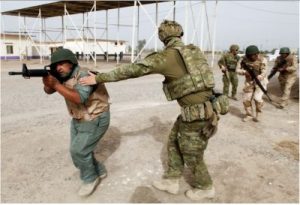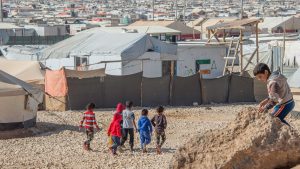Progress Update
Globally, 60 countries and the United Nations now contribute foreign terrorist fighter profiles to Coalition partner organization INTERPOL. Between October 2016 and January 2017, there was a 63 per cent increase in the number of profiles of FTF accessible in real time through the INTERPOL criminal information system. At least 26 Coalition partners now share financial information that could provide actionable leads to target, apprehend, and prosecute FTFs. And at least 31 countries have implemented enhanced traveler screening measures.

To help practitioners improve these capabilities, the Global Coalition’s FTF working group recently conducted exercises to help members strengthen information exchange, improve the use of signalling systems, and fine-tune related operational procedures. These efforts build international capacity to detect and intervene against FTF travel.
To further impede FTF movements, several Coalition member countries neighboring Iraq and Syria have enhanced physical border security measures, including Turkey, Jordan, and Saudi Arabia.
Pursuant to UNSCR 2178, more than 60 countries have enacted laws or amendments to impose further obstacles to FTF travel into Iraq and Syria, and at least 65 have already prosecuted or arrested FTFs or FTF facilitators.
Financial resources available to FTFs have been significantly curbed through cooperation and measures taken by Coalition members to target Daesh financing.
Ongoing dialogue between Coalition governments and social media service providers is helping to counter online radicalization and recruitment of FTFs.
Next Steps
As the Coalition FTF Working Group continues to focus on improved sharing of timely and actionable information to disrupt FTF movement across borders, it is also examining a multitude of national approaches to deal with returning FTFs. Coalition efforts to promote information exchange and international best practices relating to criminal justices responses and rehabilitation/reintegration practices are more critically important than ever before, as FTFs increasingly abandon Daesh.








